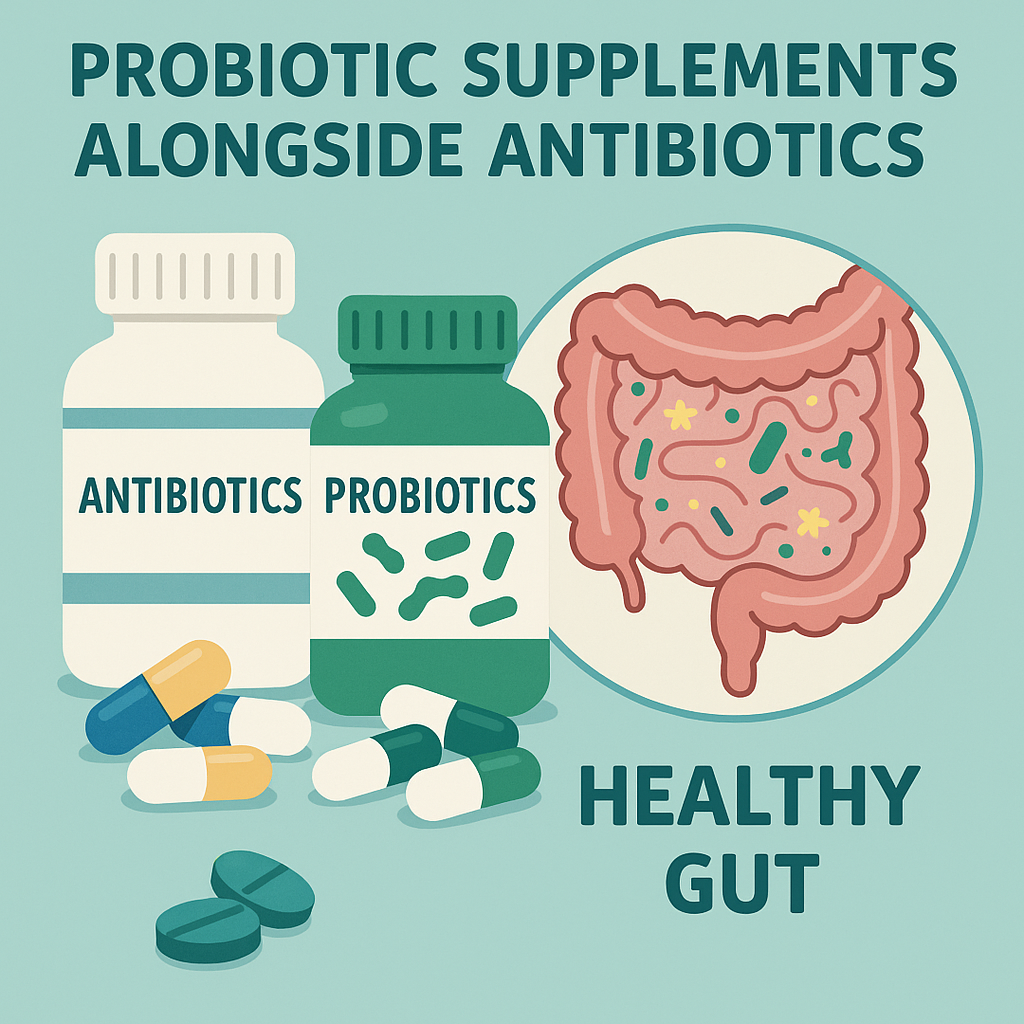When taking antibiotics, the question often arises – how to protect intestinal health and avoid unpleasant side effects? Antibiotics, although they kill disease-causing bacteria, at the same time disrupt the natural intestinal microflora. The consequences of this imbalance can be digestive disorders, diarrhea and reduced immunity. This is why the use of probiotics, or good bacteria, becomes an essential step in maintaining a healthy body during antibiotic therapy.
In this article, you will learn when exactly you should take probiotics during antibiotic treatment, which bacterial strains are most effective, how to choose the right probiotic preparation and what additional ways you can take care of the intestinal microbiome during and after antibiotic treatment. You can find more information about what probiotics are on the probiotic food supplements for intestinal health overview page.
Why do antibiotics harm the intestinal microflora and why are probiotics important
Antibiotics work by destroying or stopping the reproduction of bacteria. Unfortunately, they cannot distinguish between beneficial and harmful bacteria – all microorganisms that are sensitive to a particular antibiotic are destroyed. The intestinal microflora, which is home to trillions of different bacteria that form a complex ecosystem, is particularly affected by the effects of antibiotics.
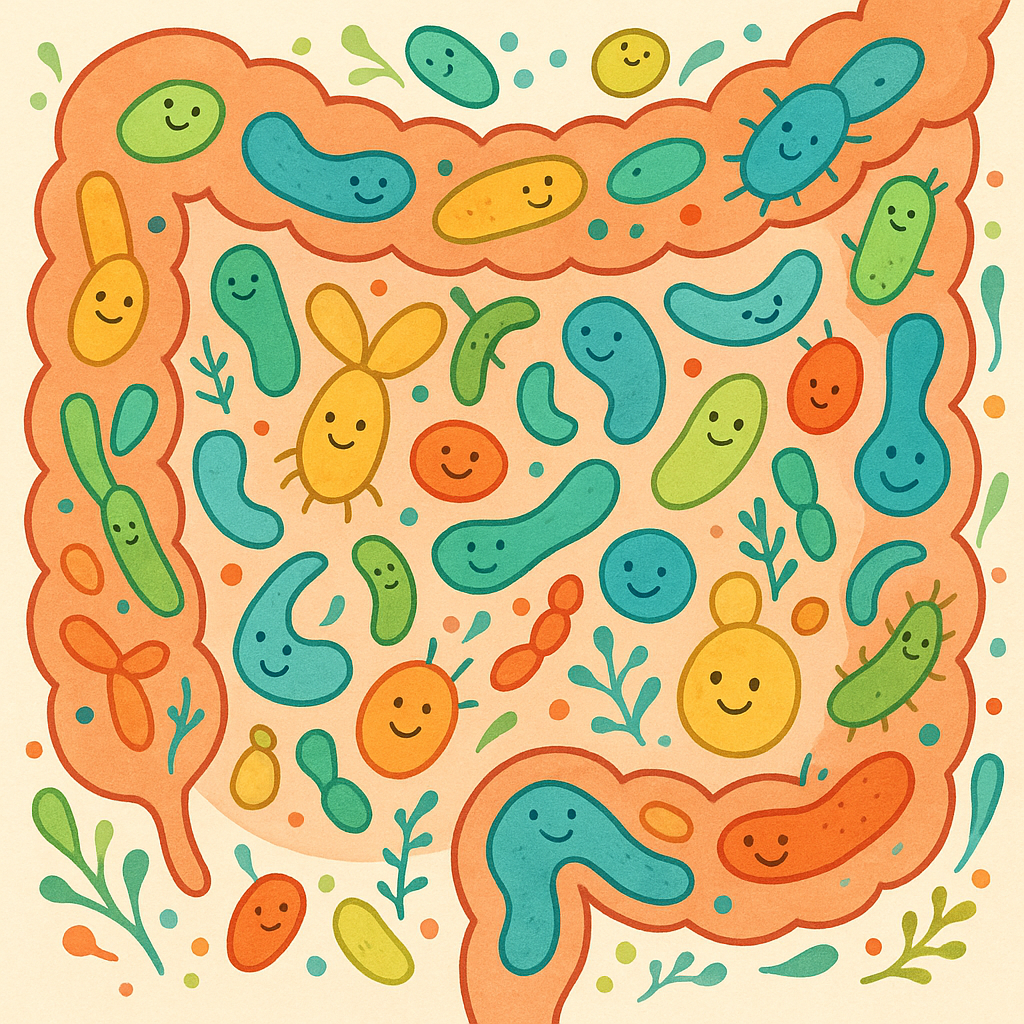
This effect can result in various digestive disorders. Among the most common side effects of antibiotics are:
- diarrhea (occurring in up to 30% of patients)
- flatulence
- stomach pain
- nausea
- disordered normal digestion
- increased susceptibility to infections
Probiotics are live cultures of microorganisms that, when consumed in sufficient quantities, have a positive effect on human health. Scientific studies show that these good bacteria can restore the intestinal ecosystem, aid digestion and strengthen immunity. According to the recommendations of the World Health Organization, probiotics can significantly reduce the risk and duration of antibiotic-associated diarrhea.
The imbalance of microbiota caused by antibiotics can persist for several months after the end of treatment. Therefore, prophylactic use of probiotics is important not only during the course of antibiotics, but also after it, in order to restore healthy intestinal microflora.
According to the guidelines of the European Association of Gastroenterology, probiotics are safe for most people, but patients with severe immune system disorders should definitely consult a doctor before taking probiotics.
If you are looking for specific, high-quality supplements, it is worth considering KIKI Health Probiotics, Good Bacteria.
When to take probiotics with antibiotics
The timing of taking probiotics is extremely important to ensure their effectiveness and protect good bacteria from the effects of antibiotics.
The optimal time to take probiotics is 2-3 hours after taking antibiotics. This time period is necessary so that antibiotics do not damage the beneficial bacterial cultures contained in probiotics. It is very important to start taking probiotics from the first day of taking antibiotics – without waiting for side effects to appear.
According to gastroenterologists from the Faculty of Medicine of Vilnius University, probiotics should be taken not only during the course of antibiotics, but also for at least 2-4 weeks after it. This helps restore the intestinal microflora that was disrupted by antibiotics.
Practical recommendations for taking probiotics:
- if you take antibiotics in the morning and evening, take probiotics at noon and before bed
- if you take antibiotics three times a day, take probiotics between doses
- if you notice diarrhea or other digestive disorders, consult your doctor about increasing the dose of probiotics
- monitor your body’s reaction and adjust the dosage regimen if necessary
Special attention should be paid to Saccharomyces boulardii – a yeast culture that is resistant to many antibiotics, so it can be used even at the same time as antibiotics. This probiotic yeast is one of the most studied probiotics that effectively protects against antibiotic-induced diarrhea.
For children, the elderly and people with a weakened immune system, the probiotics consumption regimen should be discussed with a doctor or pharmacist. The recommendations of the Lithuanian Pediatric Society indicate that the dosage of probiotics for children depends on age and health status.
How to Choose the Right Probiotic While Taking Antibiotics
The variety of probiotic products on the market can be confusing, so it’s important to know what criteria determine the right probiotic to use while taking antibiotics.
According to clinical studies and expert recommendations, the following probiotic strains are considered the most effective when taking antibiotics:
Lactobacillus rhamnosus GG – one of the most studied probiotic bacteria strains, effectively protecting against diarrhea
Bifidobacterium bifidum – helps restore normal intestinal microflora
Saccharomyces boulardii – a yeast culture resistant to many antibiotics
Lactobacillus acidophilus – strengthens the intestinal barrier function
Bifidobacterium longum – improves digestion and reduces inflammation
When choosing a probiotic preparation, pay attention to the following factors:
- number of bacterial cultures – multicomponent probiotics containing several different bacterial strains are often more effective
- Number of CFU (colony forming units) – it should be at least 1 billion, and when taking antibiotics, it is recommended to choose products with 10-20 billion CFU
- resistant capsules – they ensure that probiotics remain active until they reach the intestines
- storage conditions – some probiotics have be stored in the refrigerator, others are stable at room temperature
In addition to dietary supplements, probiotics can also be obtained from natural fermented products:
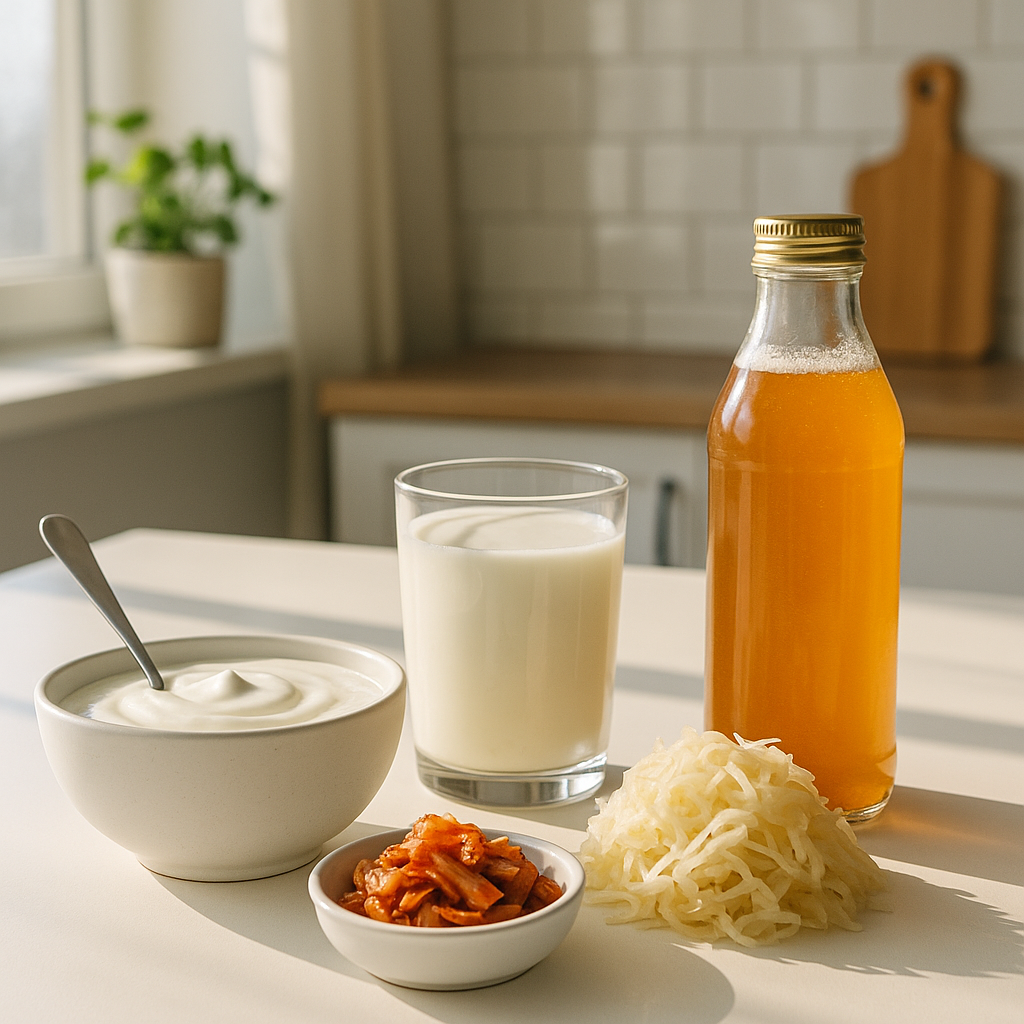
yogurt with live cultures
kefir
sauerkraut
kimchi
kombucha
However, it is important to understand that the concentration of probiotics from natural sources is usually too low to provide significant protection when taking antibiotics. Therefore, it is recommended to choose specially formulated probiotic supplements.
The guidelines of the Lithuanian Gastroenterological Society indicate that probiotics that are started in the first days of antibiotic therapy are most effective. Individuals with chronic digestive or immune system disorders are recommended to consult a doctor for individual recommendations.
To familiarize yourself with a wider list of natural and complementary remedies for digestion and intestinal health, visit this page.
Supplementary remedies for intestinal restoration after antibiotics
In addition to taking probiotics, the restoration of intestinal microflora can be accelerated by following certain dietary and lifestyle principles. Scientifically based recommendations will help restore a healthy intestinal ecosystem faster.
Sufficient fluid intake is one of the most important factors in maintaining intestinal health. Experts recommend drinking at least 2 liters of water a day, especially when taking antibiotics. Water helps eliminate toxins and maintain normal bowel function.
Prebiotics are insoluble dietary fibers that serve as food for the growth of good bacteria. They create a favorable environment for probiotics to function and multiply. Prebiotics are abundant in the following foods:
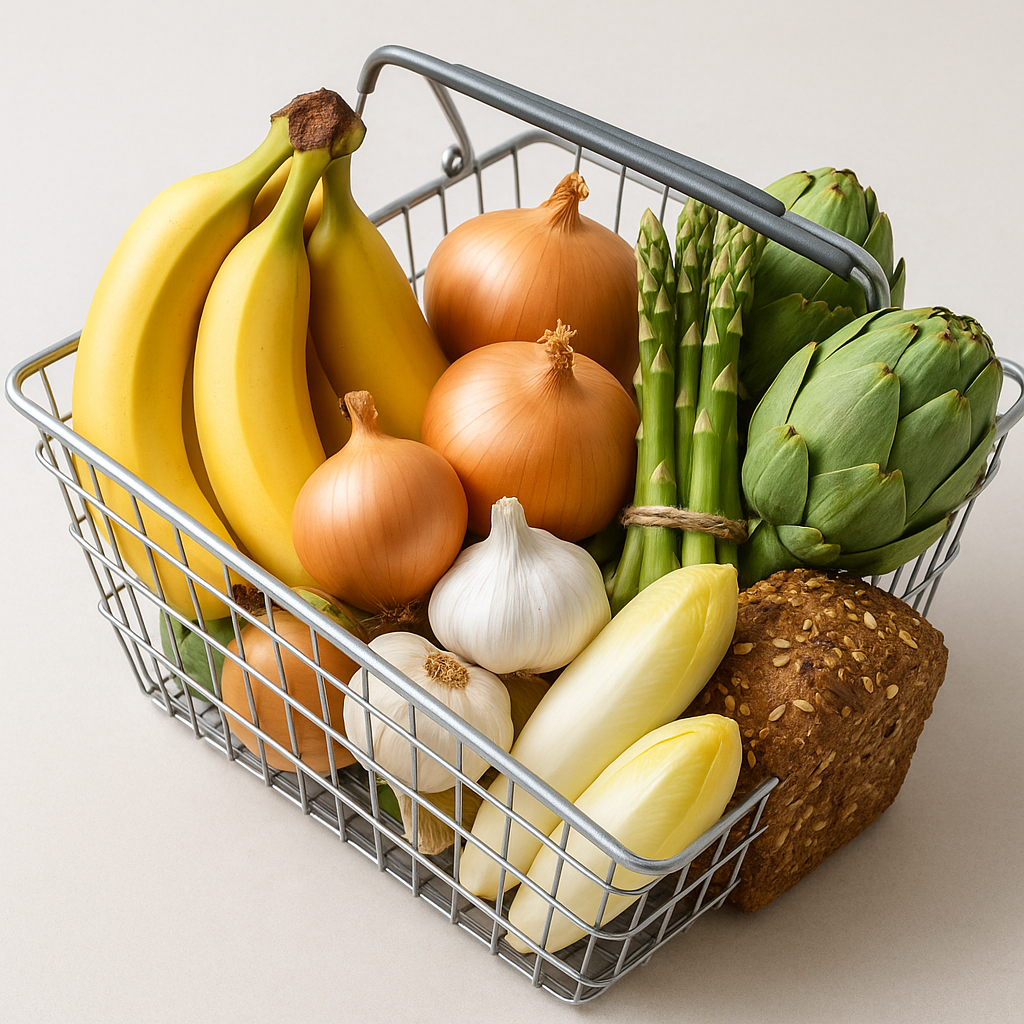
- garlic and onions
- green beans
- bananas
- chicory
- artichokes
- whole grains
Stress management also plays an important role in restoring gut health. Chronic stress negatively affects the gut microbiome and can slow down its renewal. Regular physical activity, meditation and sufficient sleep help reduce stress levels and promote the body’s natural healing.
Avoid:
- processed foods rich in preservatives
- a large amount of sugar, which feeds pathogenic bacteria
- alcohol, which can enhance the side effects of antibiotics
- excessive caffeine consumption
The recommendations of the Lithuanian Dietetic Association note that after a course of antibiotics, it is important to follow a balanced diet rich in antioxidants and nutrients. This helps restore the intestinal mucosa and strengthen immunity.
For those who want comprehensive support for the digestive and immune system, KIKI Health Immunity – A blend of adaptogens, herbal extracts and probiotics may be one of the options.
Summary
Taking probiotics with antibiotics is an important strategy to help maintain gut health and avoid unpleasant side effects. To achieve maximum effect, you should follow these basic recommendations:
- Start taking probiotics from the first day of a course of antibiotics
- Take probiotics 2-3 hours after a dose of antibiotics
- Continue taking probiotics for at least 2-4 weeks after a course of antibiotics
- Choose probiotics with clinically proven strains (Lactobacillus rhamnosus GG, Bifidobacterium bifidum, Saccharomyces boulardii)
- Support gut health with proper nutrition, adequate fluids, and stress management
Remember that the optimal probiotic regimen may vary depending on individual health needs, the type and dose of antibiotics being taken. It is always recommended to consult a doctor or pharmacist for personal recommendations.
In most cases, taking probiotics is a safe and effective way to alleviate the side effects caused by antibiotics and accelerate the restoration of intestinal microflora. By taking care of your gut health, you will not only make antibiotic therapy easier to tolerate, but you will also strengthen your overall immunity and well-being.
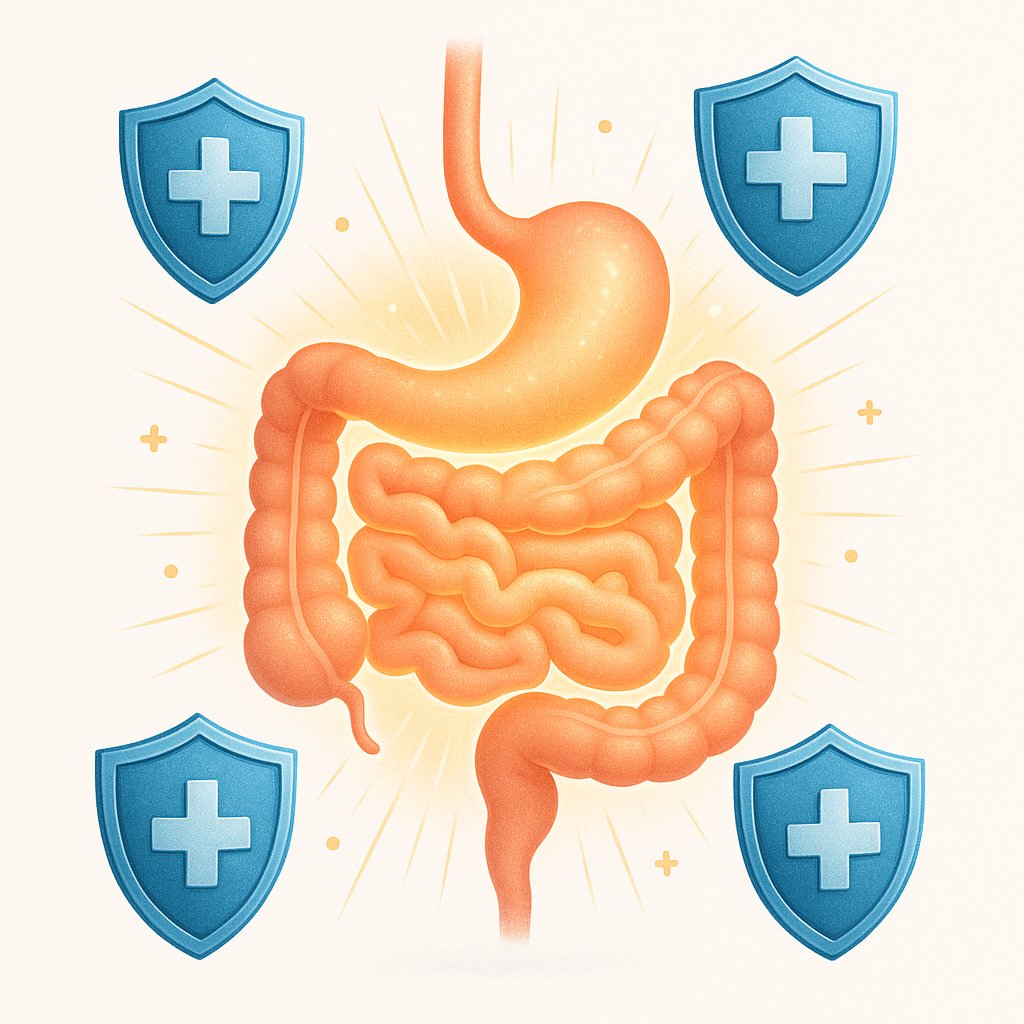
Learn more about natural immune-boosting supplements that you can use all year round.
Frequently Asked Questions (FAQs)
Should probiotics be taken with or after antibiotics?
It is best to take probiotics 2-3 hours after each dose of antibiotics, starting on the first day and continuing for at least 2-4 weeks after the end of the course.
Which probiotic strains work best with antibiotics?
Clinical studies have shown that Lactobacillus rhamnosus GG, Bifidobacterium bifidum, and Saccharomyces boulardii are the most effective strains in preventing antibiotic-associated diarrhea and restoring intestinal balance.
Can probiotics reduce the side effects of antibiotics in children?
Yes, probiotics can reduce the risk of antibiotic-associated digestive upset in children. Use formulations designed for children and consult your doctor or pharmacist first.
Are there foods rich in natural probiotics or prebiotics?
Yes, naturally fermented foods like yogurt, kefir, sauerkraut, and kimchi contain probiotics, and high-fiber foods (bananas, onions, garlic) contain prebiotics, which help feed and restore beneficial bacteria.
Is it safe for anyone to take probiotics with antibiotics?
Most people tolerate this combination well, but people with weakened immune systems or serious medical conditions should consult a healthcare professional before taking probiotics.

